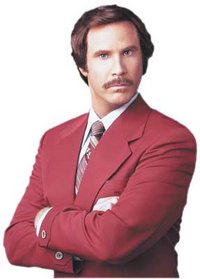Friday, June 23, 2006
The Foreign Correspondent

I finished Alan Furst's latest, The Foreign Correspondent--which, our regular readers know, I've mentioned a few times--and it's very good. It's about Carlo Weisz, an Italian journalist forced to flee Italy for Paris in 1938, on the run from Mussolini's fascist bully boys. The book focuses on the various risks (including getting yourself killed) involved in running an opposition newspaper as well as a love affair with an ex-flame who gets herself in some hot water. Some of our favorite Furst characters make cameos--including Count Polanyi, Lewis Fischfang (what a name!), and the Pravda correspondent Andre Szara (who seems to have his own blogger account--see here, at the bottom of the page--which seems odd since he is both a fictional character and must be long dead by now).
Anyway, I have noticed that the scope and style of the books has changed in the more recent books. The early books are quite long--often more than 400 pages, if memory serves (I've loaned my copies to others and they have, alas, not been returned)--and often epic in scope. The last three books--Blood of Victory, Dark Voyage, and The Foreign Correspondent--have been notably shorter (in terms of page count) and the stories themselves are, if not exactly less ambitious, smaller in scale. (I recall reading something along these lines elsewhere recently--I thought perhaps here--but can't seem to find it.) The more recent books still have Furst's pitch-perfect voice, amazing characters, and gift for atmosphere. They are just as brilliant. But I guess I miss the scope and size of the earlier works. There's nothing quite like getting wrapped up in an incredible novel--so good it's hard to put down to go to bed, even at two in the morning--for several weeks. I suspect those of us--I assume there are others--who love the bigger Furst books will simply have to go back and re-read the earlier ones.
Since we're on the topic--it's a stormy, muggy Friday afternoon here in Boston, and little else is likely to get done at this point--perhaps I'll say a bit about his earlier books. My favorite--and the longest of the bunch, I think--is Night Soldiers, about the NKVD agent Kristo Stoianev, whose loyalty to the cause of international communism isn't quite as robust as his (considerable) abilities as a secret agent. I also love Dark Star, which features Pravda correspondent (and blogger) Andre Szara. Kingdom of Shadows, set in Paris in 1938 and 1939--war is coming and everyone who's paying attention knows it--centers on the Hungarian aristocrat, Nicholas Morath, and his uncle, Count Polanyi. World at Night and Red Gold take place 1940 and 1941 in a Paris under Nazi occupation, and feature the French film producer Jean Casson. Blood of Victory--which, technically according to the distinction I made above, is latter, smaller-scale Furst--features the Russian writer I.A. Serebin and gobs of atmopshere in an Istanbul overflowing with sketchy characters. The one book that didn't quite click with me is The Polish Officer--the main character and plot are very fuzzy in my memory, though perhaps I ought to give it another shot.
That's all for now. Happy weekend.
Note to Bram: These books, in my opinion, would make amazing graphic novels. However, I should admit that Queen and Country is the first graphic novel I've read since, well, Frank Miller's The Dark Night, so what do I know.

